Health benefits of coriander and its seeds
Health benefits of coriander and its seeds
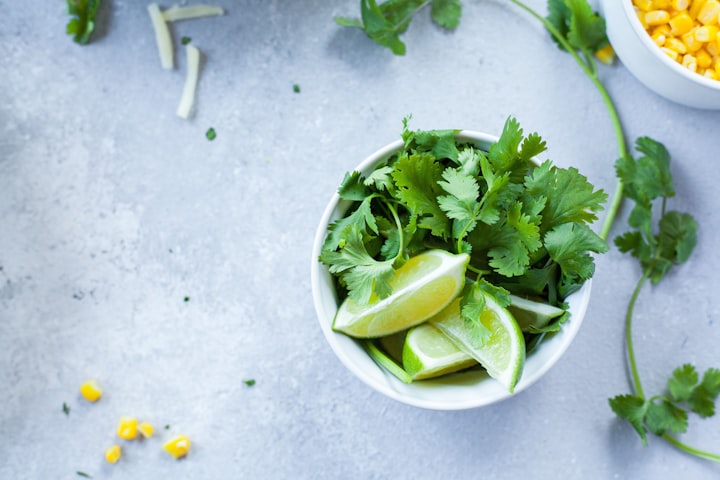
Health benefits of coriander and its seeds
Coriander is an aromatic herbal plant grown in the Mediterranean basin and East Asia, and its leaves and seeds are used as a kind of spice, and it is considered one of the most important medicinal herbs, so what are the health benefits of coriander and its seeds?
Coriander is used in many recipes, and it is common in Indian, Arabic, and Middle Eastern cuisine. It is a nutritionally valuable herb that has many health benefits and therapeutic properties.
Here are the most important benefits of coriander and its seeds for health, nutritional values, and methods of use:
Benefits of coriander and its seeds
Here is a collection of the potential health benefits of coriander and its seeds when ingested:
1. Cancer prevention
Dried coriander seeds are anti-cancer, according to some studies. The antioxidants in cilantro have been linked to reducing inflammation and slowing the growth of cancer cells in the laboratory.
The presence of carotenoids in coriander also enhances this property, as it is a powerful antioxidant that is useful in fighting various types of cancer.
2. Lower cholesterol levels
Coriander is one of the plants useful in reducing bad cholesterol levels and raising good cholesterol levels, thanks to its content of some beneficial fatty acids, which helps in improving the health of the heart and blood vessels.
3. Improve digestion
Coriander is very good in promoting the health of the digestive system and the functioning of the intestines, and it enhances the functioning of the liver, and therefore it is very beneficial for the digestion process.
Coriander also helps in healthy secretion of enzymes and digestive juices in the stomach, thus stimulating digestion and bowel movement, and is also useful in reducing symptoms of anorexia.
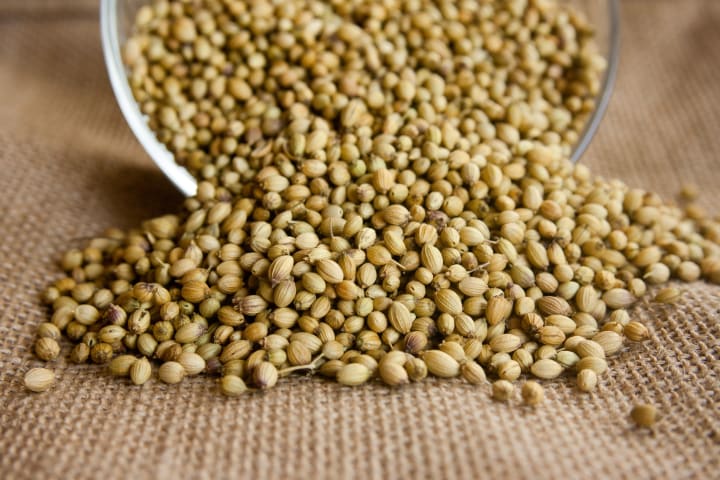
4. Improve bone health
Calcium and other essential minerals found in cilantro may help maintain bone health, strength and durability, as well as protect against osteoporosis.
Coriander also contains anti-inflammatory substances, and thus helps prevent arthritis.
5. Regulating blood sugar levels
Eating coriander contributes to lowering blood sugar levels, as it encourages the secretion of the hormone insulin in the body, so diabetics may be advised to add it to their daily dishes.
6. Treating anemia
Coriander plant helps in treating anemia, because it is a rich source of iron.
7. Promote brain health
It was found that coriander has a great role in enhancing the functioning of nerves and maintaining their integrity, and it also contributes to the prevention of Alzheimer’s disease thanks to its anti-inflammatory properties.
The antioxidants in cilantro may also help improve memory and reduce symptoms of anxiety, although more research is needed.
Nutritional value of coriander and its seeds
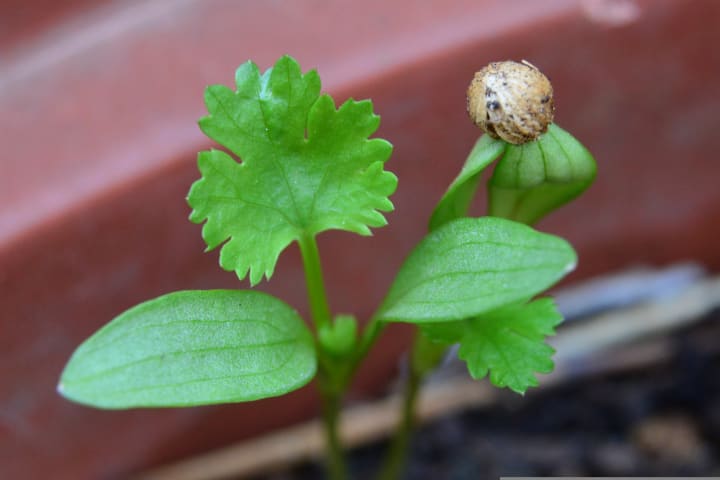
After learning about the benefits of coriander and its seeds, we will present the nutritional value of coriander and its seeds as follows:
1. The nutritional value of coriander
Every 100 grams of fresh coriander leaves contain the following:
Energy 23 calories
Protein 2.13 grams
Carbohydrates 3.67 grams
Fiber 2.8 grams
Calcium 67 milligrams
Iron 1.77 milligrams
Magnesium 26 milligrams
phosphorus 48 milligrams
Potassium 521 milligrams
Sodium 46 milligrams
Vitamin C 27 milligrams
2. The nutritional value of coriander seeds
100 coriander seeds contain the following:
Energy 298 kcal
Protein 12.37 grams
Carbohydrates 54.99 gr
Fiber 41.9 grams
Calcium 709 milligrams
Iron 16.32 milligrams
Magnesium 330 milligrams
Phosphorus 409 milligrams
Potassium 1267 milligrams
Sodium 35 milligrams
Vitamin C 21 milligrams
Coriander damage
The harm of coriander is very small, but it may cause skin allergies in some people.
Also, an unusual side effect is that some patients complain that excessive consumption of coriander increases sensitivity to sunlight and sunburn.
In addition, it is advised to refrain from consuming coriander by pregnant women, until more research is done.
How is coriander used?
You can eat coriander and get its benefits through:
Add them to grilled vegetables or salads.
Use it as a seasoning while cooking meat.
Add them to different types of soup.
It is usually recommended to store coriander seeds in an airtight container and can be stored for a period of one to two years, and in return, coriander powder can be stored in an airtight container for 6 months.
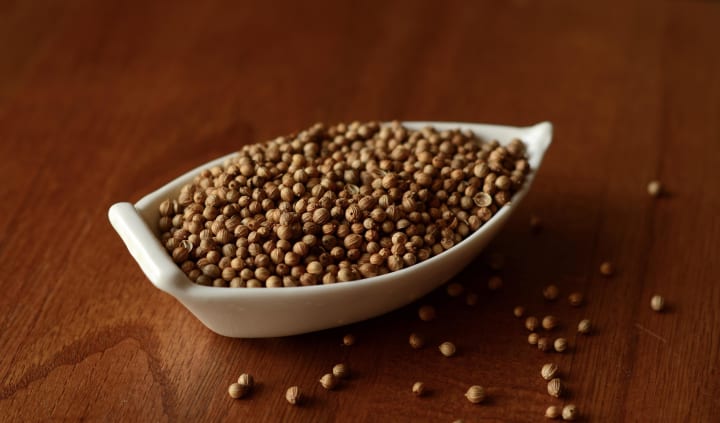


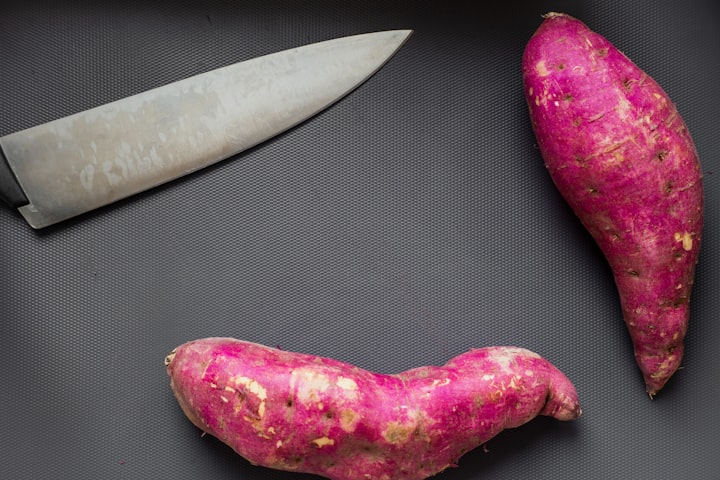



Comments
There are no comments for this story
Be the first to respond and start the conversation.